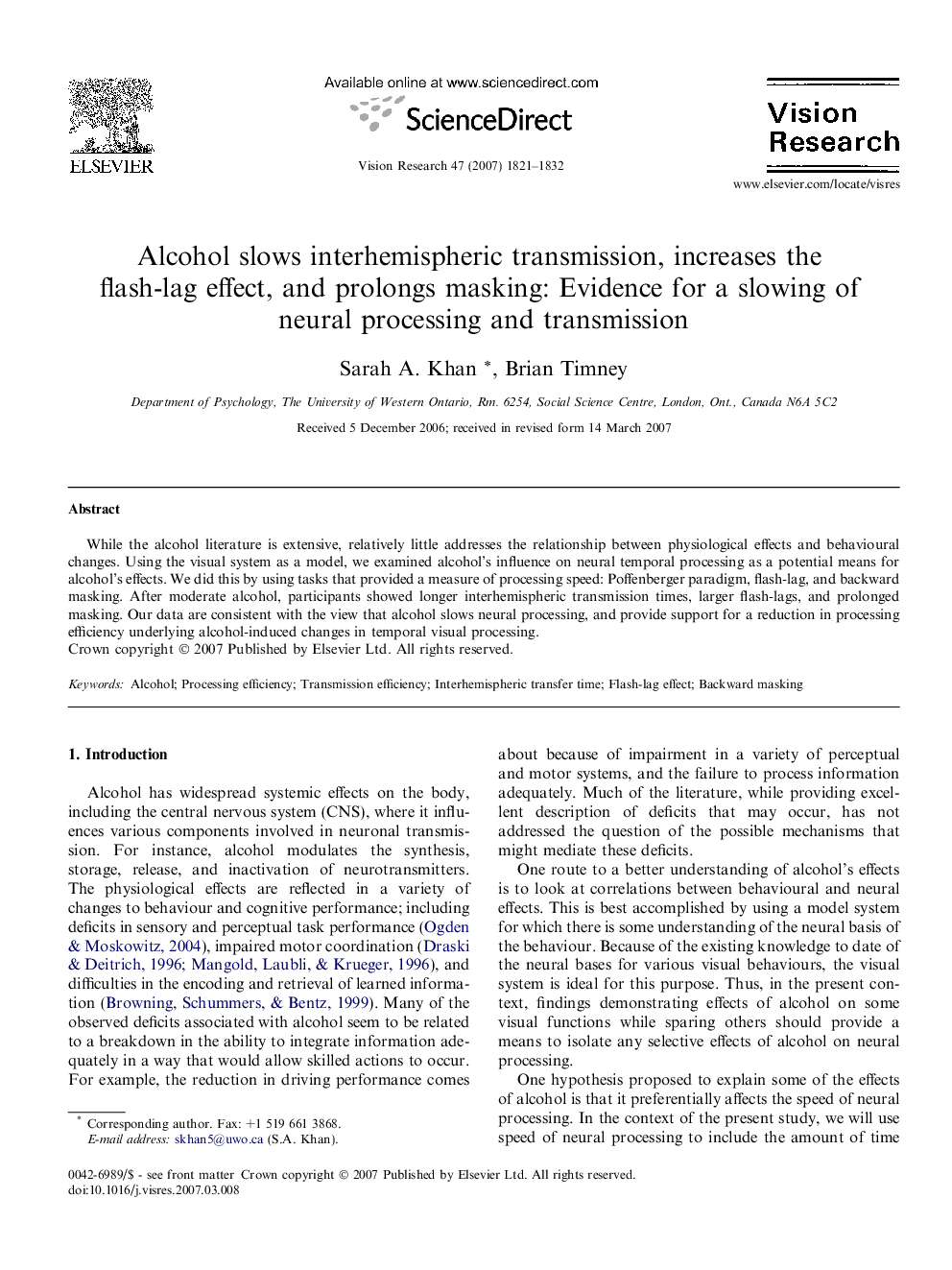| Article ID | Journal | Published Year | Pages | File Type |
|---|---|---|---|---|
| 4036259 | Vision Research | 2007 | 12 Pages |
Abstract
While the alcohol literature is extensive, relatively little addresses the relationship between physiological effects and behavioural changes. Using the visual system as a model, we examined alcohol’s influence on neural temporal processing as a potential means for alcohol’s effects. We did this by using tasks that provided a measure of processing speed: Poffenberger paradigm, flash-lag, and backward masking. After moderate alcohol, participants showed longer interhemispheric transmission times, larger flash-lags, and prolonged masking. Our data are consistent with the view that alcohol slows neural processing, and provide support for a reduction in processing efficiency underlying alcohol-induced changes in temporal visual processing.
Keywords
Related Topics
Life Sciences
Neuroscience
Sensory Systems
Authors
Sarah A. Khan, Brian Timney,
